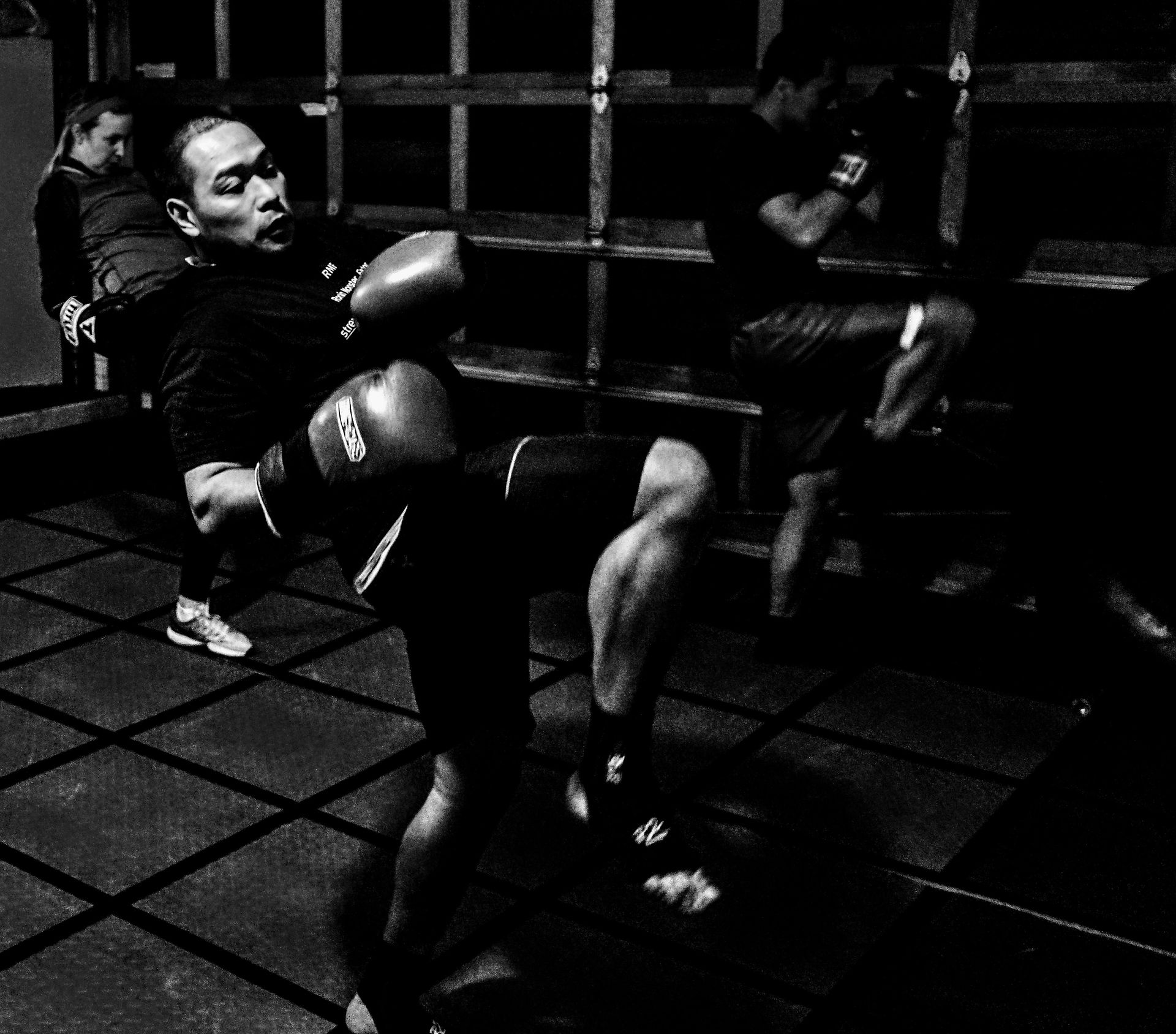In this blog, I list some questions and briefly recall times when I’m glad my clients had this conversation with their doctor before reaching out to me for training.

You’ve probably heard the phrase
“Consult your doctor before starting an exercise program.”
It's a CYA (cover your a**) statement that accompanies many training programs, exercise equipment labels and most (credible) personal trainers' contracts.
It should be a no-brainer, right?
Barbells go up and down.
Stationary bikes work like regular bikes.
What does your doctor have to do with any of this?
As it turns out, there are some conditions that can and should influence how you go about getting into better shape.
Knowing all the facts lets you make an informed decision; as well as ensuring your performance and safety.
It never hurts to start off knowing all the risks. At a minimum, asking the right questions can help you make informed decisions. In the most extreme case, it can keep you out of the emergency room!
Here is a list of questions that you should consider asking your doctor if you’re thinking about starting an exercise program.
Do I have any existing joint issues that would cause concern during exercise?
Having worked with a client with two artificial knee joints and limited range of motion, this was a major consideration. Although she was able to lift heavy weights, we avoided certain knee angles during leg exercises. Despite a lack of flexibility and mobility, she was still able to significantly increase her leg strength.
I once worked with an athlete whose hip sockets caused his femurs (upper leg bones) to dislocate when he moved his hips a certain way under load. Needless to say, we avoided those angles!
As a work-around, we focused on hip stability and pre-surgery strengthening for his lower body. This strategy proved immensely beneficial in his recovery and return to sports post- surgery.
How will exercise affect how my body responds to my current medication(s)?
Although exercise is commonly known to reduce high blood pressure in a beneficial way, those diagnosed with high blood pressure need to be aware of the effects of exercise on their physiology.
This is especially true if you are taking blood pressure medications. Because medications can affect your body’s natural responses to stress (i.e. fluctuations in heart rate, blood pressure, blood vessel function, etc.), it’s important to make your doctor aware of the types of exercises you are undertaking.
Always ask this if your dosage, schedule and other important factors were determined prior to you starting an exercise program.
What activities might increase my risk of an asthma attack?
History has proven that it’s possible, even for someone with asthma, to reach Olympic level performance. It’s important to keep your doctor informed about any activities that could affect your risk of an asthma attack. The way you prevent attacks may need to change based on your new exercise program.
I once worked with a client who managed her asthma without an inhaler. To work around this, we kept a close watch on her attack triggers and relied heavily on the feedback she periodically received from her doctor.
Should I be concerned about exercises that may elevate my heart rate?
The fitness industry tries to treat heart rate in a standardized way using equations, zones, percentages and target heart rates. However, when it comes to individual clients, you can’t rely on simple calculations in order to predict how their heart rates will respond to exercise.
I once worked with an athlete in his 40s whose heart rate would race above 220 beats per minute even though he seemed perfectly fine. According to all the textbooks, his heart rate should never go above 180.
Luckily for both of us, his doctor explained to him that he just had an abnormally high heart rate. Knowing this, we were able to train at sufficiently high intensity while keeping an eye out for any signs of cardiovascular trouble.
Am I cleared after surgery to start or resume an exercise program?
Sometimes even though there is no pain, there might still be indicators that only your doctor can observe which would indicate you need to give yourself more time to heal. Athletes are notoriously skilled at working through pain. I am sometimes guilty of this as well!
This is just a SHORT list of data points that I always ask about when starting with a new client.
All exercise alters your physiology, and your doctor is ultimately the expert in that regard. Asking your doctor these questions ensures that everyone is on the same page with regard to your readiness to start your fitness journey.
Can you think of any more to add to the list? Post them in the comments section below!
I hope this short blog was helpful! If you're committed to reaching your high performance goals, Ronin Monster Factory is here to guide you. Click here to book a strategy call!


Comments